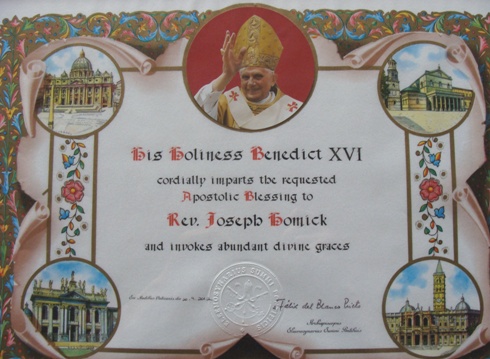Babies!
 Now that I live in South City I can do things like join in the Walk for Life West Coast, the smaller but no less enthusiastic pro-life event that is a counterpart to the great annual March for Life in Washington, DC. So I did that this year; first time, and I’m sure it won’t be the last. The crowd that marched through the middle of San Francisco was 50,000 strong, making a statement that the fight for the right to life is undaunted by recent electoral setbacks. The voices that cry out for justice for the unborn will not be silenced.
Now that I live in South City I can do things like join in the Walk for Life West Coast, the smaller but no less enthusiastic pro-life event that is a counterpart to the great annual March for Life in Washington, DC. So I did that this year; first time, and I’m sure it won’t be the last. The crowd that marched through the middle of San Francisco was 50,000 strong, making a statement that the fight for the right to life is undaunted by recent electoral setbacks. The voices that cry out for justice for the unborn will not be silenced.
I was encouraged and edified by the testimonies and inspirational exhortations of the several speakers. I was also rather unexpectedly moved by the singing of the national anthem at the beginning of the event. I found myself grieving over the increasing destruction of our country by those in league with the devil, and I begged the Lord to have mercy on this once-great nation, and I also begged Our Lady of America to intercede for us. There are still many good people left, but we are more and more oppressed by political agendas that intend to destroy the moral foundations of America and turn this country into something never envisioned by our founding fathers—still less by God, who richly blessed this country for the sake of serving Him and helping others throughout the world, while being a witness to his righteousness and truth. All that is out the window now. But as one of the speakers insisted, the truth will always overcome lies—just and Christ conquered death by his resurrection—and those who fight for the rights of the unborn will not cease fighting until every child has a right to live. The harder people work to restore the right to life—and to help pregnant women with effective counsel and concrete material resources—more and more babies will be saved, even if the laws don’t change for quite some time.
The atmosphere was festive and joyful, and countless banners and signs were carried, proudly displaying the pro-life message in various ways. What was notable about this rally was that there were more young people than older people, which means the future belongs to those who stand up for life. The movement isn’t dying; it is growing. I had to smile when a few teenagers walked by chanting: “Babies! Babies!” You could feel the power of goodness, the energy of life, the spirit of prayer. Rosaries were prayed along the walk, hymns were sung, people talked and renewed acquaintances, as we did once again what unbelievers stood on the sidewalks shaking their heads over: 50,000 people were praising God and upholding a most unpopular message (though one of the locals—I hope she wasn’t drunk—said, with apparent wonder and delight: “Saints are walking the streets of San Francisco!).
Of course, there were some counter-demonstrations, few and small, and hardly anyone paid them any attention. There was only one place where some of them lined up with signs and angry, obscene shouting, but the walkers just sang “Ave Maria” a little louder and kept on going. I didn’t read all the signs, but there was one that said something about “Christian Fascists” and a few others that read: “Abortion on demand, and without apology.” That was pretty scary, for their sake. It’s just like saying: “Mortal sin, and without repentance,” which is precisely how you get to end up in Hell for all eternity. So I put them all on the mop-up list, in hopes that some will respond to God’s offer of the grace of final repentance before they exit this world. The spirit between the two groups was so radically different: the pro-lifers were joyful, prayerful, peaceful, as they stood up for what is dear and precious in this life. The pro-aborts were angry, hateful, bitter, obscene, as they promoted death and the debauched lifestyle of the godless. To which group would you prefer to belong?
As the march came to a close, the group I was with gathered for prayer on a sidewalk in front of the Diva International Salon (!). By this time the streets were re-filling with the usual crowds, some of whom gave us bewildered looks, some of whom obviously couldn’t care less who we were. So in a sense life would go on there as it had before. Yet something had changed, a blessing was given, grace was being offered, for God had been glorified in those few hours in a place where his name is seldom spoken with devotion.
As we prayed the Divine Mercy chaplet, something was impressed upon me as I looked up to the bit of clear blue sky that could be seen between the sky-scraping icons of money and power in the heart of The City. It was the Lord upon his Cross, but with rays of grace and mercy streaming from his holy wounds. It became very clear to me that the Lord loves all these lost souls and intensely desires to save them. He really, really wants to! But He will not force them. They seem to be oblivious of Him and o f his call to repentance and salvation. A symbol (and an actual instrument) of this is the almost ubiquitous presence of electronic devices and phones into which nearly everyone was plugged into or mindlessly staring at. We noticed it on the subway trip as well. Almost all of them sat there mesmerized, glued to their screens. It seems to me that it must be really hard to hear the voice of God when all kinds of loud noises are being pumped into your ears and endless images imprinted on your brain all throughout the day. The devil must be gloating over this advance in technology by which he can seal off minds from God, distracting them endlessly from the One Thing Necessary.
f his call to repentance and salvation. A symbol (and an actual instrument) of this is the almost ubiquitous presence of electronic devices and phones into which nearly everyone was plugged into or mindlessly staring at. We noticed it on the subway trip as well. Almost all of them sat there mesmerized, glued to their screens. It seems to me that it must be really hard to hear the voice of God when all kinds of loud noises are being pumped into your ears and endless images imprinted on your brain all throughout the day. The devil must be gloating over this advance in technology by which he can seal off minds from God, distracting them endlessly from the One Thing Necessary.
So it was a day of blessing and a day of hope, but also a day in which it was made all the more clear that the battle for souls is still raging fiercely. As we stand up for the life of the unborn, we ought also to pray and sacrifice for the eternal life of those who have sold their souls to a lifestyle that ends up in eternal death. But that Cross is still there; those wounds are still shining; that divine love and mercy are still being offered; the Mother of God and all the Saints and Angels are still interceding. Let us continue to work, and work harder, to protect the little ones and to save the souls of the wicked ones. For the Lord wants his house to be full.




